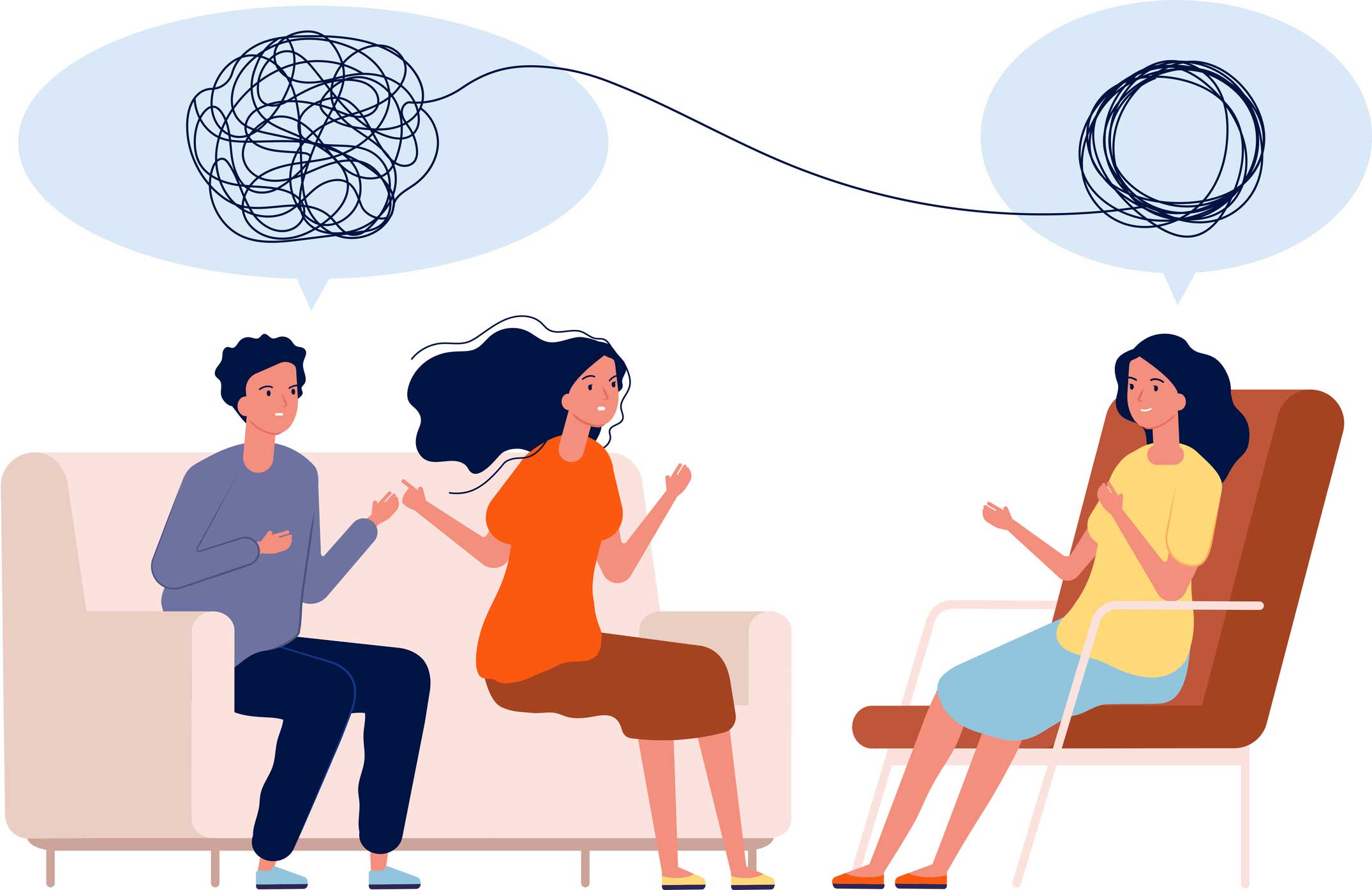This month, we thought we'd address the problem of being “lost and wandering” in the middle stage of couples therapy. This can be tough because the couple may not tell you directly. You may not want to admit it to yourself. Or, if you admit it, it may take you time to figure out how to get back on track.
Here are some ideas to simplify the process of regrouping.
If you are “lost and wandering,” it is often the result of one of the following two problems.
I. GOAL DIFFICULTY: You have lost track of the original goal, or the partners have become vague and ill-defined about their own goals. They bring you the problem of the week rather than creating an integrated thread to their therapy. This means it is time to re-clarify their goals. What do the partners want to create in their relationship that is different from what they currently are doing?
You can spend a session with them re-clarifying their goals. You can talk to them about being more integrated in their work, by linking the content of their sessions to their goals and any homework they are doing between sessions. Three effective ways to do that are:
1. Ask them to keep a journal where they write a note summarizing each session after it is over. Tell them you will start the next session by asking them to read their notes to each other.
2. Tape your sessions using either audio or videotape. Ask the partners to listen/watch their tapes before the next session.
This will greatly facilitate the continuity of their work and help them stay on track with established goals.
3. Give them specific homework connected to their goals, and ask them to e-mail it to you before the next session.
II. FIGHT REPETITION: Frequently, couples report repeating fights. These fights are painful and couples want them to stop. Often the fights represent partners' vulnerabilities and shortcomings both intrapsychically and interpersonally. To change their patterns longterm requires addressing both levels.
Partners must learn to manage their reactivity better during the fight. This will lead to more productive discussions and better outcomes when they do fight.
However, often the fights also represent a repetition or transference of old family patterns. When this is the case, successful resolution requires either some family of origin work or the careful dismantling of a projection.
For example, Bill and Carla frequently fight about Carla's selfishness. Bill believes she is self-centered, self-absorbed and ungiving. He gets angry, explodes and then withdraws for days at a time. Careful work revealed that he never asked for time for himself or time to pursue any of his hobbies. He grew up with a mother who often went on long trips and had not even wanted to be a parent. Whenever Sue made a clearly defined, self- differentiated statement about her desires, he assumed she was unyielding. He would quickly capitulate and feel angry.
It took many discussions and interrupted fights for Bill and Carla to understand each other better. Sessions focused on both their interaction and his intrapsychic impasse. Initially, Bill did not believe that Carla would negotiate with him. He was entrenched in his conviction that she was selfish. Believing this kept him stuck. He did not have to stretch himself to recognize and express his own desires.
As Bill began to see Carla differently, he recognized the developmental changes he needed to make. He started to express more of his own desires. He began to take some weekend time for his activities, which set up an internal conflict for him. He was faced with guilt and a confrontation with what he had seen as selfish being actually more self-loving.
As Bill was shifting internally, he and Carla were simultaneously learning how to have tension-filled discussions that resulted when they had competing desires at the same time.
During these sessions, therapy focused on each of them developing new capacities that allowed them to problem solve and negotiate more effectively.
Specifically, Bill learned to initiate even when he believed Carla would reject him. Carla developed more ability to inquire into Bill's desires rather than giving quick yes or no answers.
Both of them learned to recognize dynamic tension as a sign of growth, not a signal that something was flawed in themselves or their relationship.
If the therapy had focused on weekly problem-solving about their fights, sustained change would not have occurred. They might have had better weeks from time to time and easier therapy sessions, but they also would have frequently felt angry and been vulnerable to repeating the same painful exchanges.
As you reflect on your own cases, ask yourself:
* What is repetitive in my clients' fights?
* Where does each partner break down instead of facilitating productive exchanges?
* Am I seeing them stretch themselves between sessions to develop new abilities?
* Am I confronting their lack of follow through?
And then ask yourself the most important questions of all:
* What is my own cutting edge of development for my skills as a couples therapist?
* Am I learning and pushing myself?
We encourage you to visit the Therapists' Resources section of our website for other resources to develop your clinical skills and as always, we applaud your work in this important specialty.

 We respect your privacy.
We respect your privacy.



